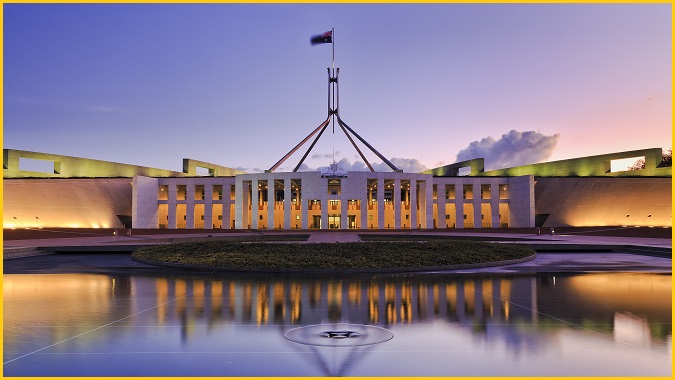The government will include a $1.2 billion digital strategy package in the next federal budget with digital cadetship program and investment in Australian artificial intelligence.
Prime Minister Scott Morrison said it was important for the country to realise the value of digital technology.
“Every business in Australia is now a digital business,” he said.
“This transformation is not merely a national one that needs to happen – it’s a global one that is happening.
“We must keep our foot on the digital accelerator to secure our economic recovery from COVID-19.”
From that headline figure of $1.2 billion, at least $500 million is going straight toward “enhancing” the government’s own digital services – work which is often outsourced to multi-national consultancy firms.
An “overhaul” of myGov will be allocated $200 million in the budget, while further work on My Health Record and the government’s digital identity project will get an extra $301 million.
Development of the local artificial intelligence ecosystem will get some government support through a $124 million AI package.
The largest portion of AI funding, $53 million, will go toward establishing a National Artificial Intelligence Centre run by the CSIRO’s Data61 with the remainder falling to pilot programs for AI-based business solutions, the creation of an AI graduate program, and grants toward regional AI development.
For comparison, Google – one of the world’s leaders in developing artificial intelligence – spent around $9.7 billion on research and development in the last quarter alone.
The government will add an extra $111 million to speed up the rollout of the consumer data right while dropping $35 million for the Emerging Aviation Technology Partnerships program to boost the use of drones in regional Australia.
Digital skills are also getting a small cash splash in the government’s updated digital strategy with over $100 million aimed toward training the future Australian IT workforce.
More scholarships for tech graduates, direct investment for cyber skills, and a pilot program for digital cadetships – something industry has been begging for – all squeeze under that $100 million spend.
Some funding, $50 million, will go toward cyber security for government, data centres, and telcos.
Tax breaks
Business can look forward to some tweaks in the tax system with the government changing the way depreciation is classed for assets like intellectual property and proprietary software.
Rebecca Schot-Guppy, CEO of FinTech Australia, said the government’s announcement signals “a shift in thinking” around the value of technology for the economy.
“The fintech sector will especially welcome the ability to depreciate software, patents, designs, and copyrights more quickly,” she said.
“It’s a starting point for a broader change in allowing and creating a separate pool of funds for software innovation with the research and development tax incentive.”
Australia’s relatively small video game industry will get a small shot in the arm through a 30 per cent ‘Digital Games Tax Offset’.
Labor MP Tim Watts said the policy was “a welcome backflip” from the government.
“As always the devil will be in the details,” he said.
“Labor has been advocating for some time that the Australian video game industry could be a billion dollar industry and a serious source of job creation in our post-pandemic recovery with the right support.”
CEO of the Interactive Games and Entertainment Association (IGEA), Ron Curry, said the video games industry would certainly appreciate the tax offset.
“The Government’s new investment commitment today will do many things,” he said.
“It will spur the creation of brand new Australian game development studios, give existing Australian studios the support they need to take on ambitious new projects and accelerate their growth, plus attract further blockbuster AAA studios to Australia, all of which will create game development jobs in every state.”
But not everybody is convinced that the tax incentives will make much of a difference to the Australian tech sector.
Sam Pratt, CEO of Melbourne-based fibre optic network company Render Networks, said the announcement was, at the very least, a positive change in the government’s tone.
“We need to acknowledge that Australia remains a comparative technology backwater and mere customer of Silicon Valley with a tech trade deficit so large, it’s incalculable,” he said.
“As meaningful as policy changes to intangible asset treatment may sound to some, a few hundred million dollars of tax breaks is a fraction of what’s required.”










